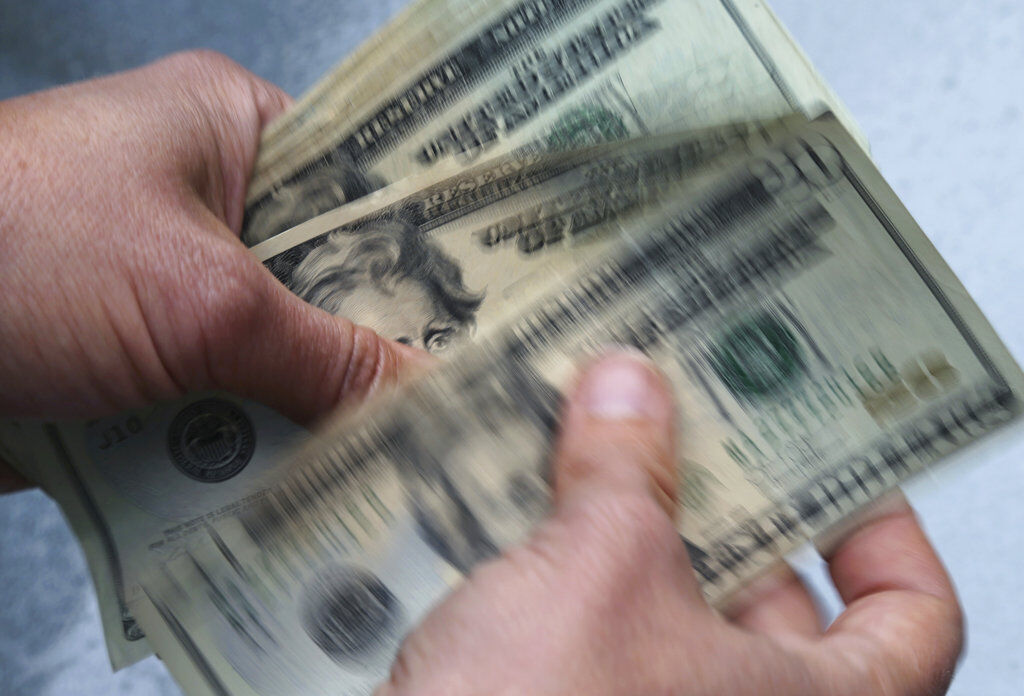PHOENIX — Arizonans who got the state’s family rebate last year had better pay federal taxes on it when they file their returns next week.
But they might ultimately get it back.
A federal judge has rejected a bid by state Attorney General Kris Mayes to get an immediate declaration that the proceeds — up to $750 per family — are exempt under rules adopted by the Internal Revenue Service.
U.S. District Court Judge Murray Snow said his reading of IRS regulations convinces him that the decision by Arizona lawmakers to give back about $260 million to about 750,000 Arizonans does not fall within exemptions from federal taxation. Snow had previously indicated he would not block the IRS from taxing the rebate.
He pointed out that under IRS rules tax-free treatment applies for “legislatively provided social benefit programs for the promotion of the general welfare.” And what that means, Snow said, is the payments should be based on the need of the individual or family getting the payment.
That, however, was not the case in Arizona. Instead, Republican lawmakers crafted the measure to provide the cash to anyone who had dependents, regardless of how much they otherwise earned.
In fact, the rebate law actually included a provision linking eligibility to having paid at least $1 in state income taxes during prior years. That eliminated anyone whose income was so low they owed nothing to the state.
But Snow said even if he was buying the state’s arguments, there was a bigger legal problem.
He pointed out that federal law spells out that courts are legally precluded from issuing injunctions like the one Mayes sought telling the government it cannot collect a tax.
Instead, the judge said, the only thing courts can do is adjudicate the legality of the tax after it has been collected and paid. And at that point, individuals who can prove they are not subject to the levy can apply for a refund.
“The court, therefore, believes it unlikely that it has jurisdiction to hear this particular claim wholly apart from whether the state has met its burden to receive a preliminary injunction,’’ Snow wrote.
A spokesman for Mayes said while she could not get a ruling to immediately block the IRS from collecting the tax she will continue to pursue the case. And, if she were to win, that could entitle affected taxpayers to seek a refund.
At the heart of the issue is a provision in the budget adopted by lawmakers last year providing a rebate to families of $250 for every child younger than 17 and $100 for older dependents, up to a maximum of $750 per family. That generated about $260 million for 750,000 Arizona families.
“When Arizona’s elected leaders chose to refund tax revenue to Arizona taxpayers last year, their reasonable expectation was therefore that the money would go to Arizona taxpayers, not to the Internal Revenue Service,’’ the lawsuit states. “But the IRS had a different idea.’’
Based on that, the state Department of Revenue issued a 1099-MISC form to each rebate recipient. A copy of those forms went to the IRS — just like a W-2 for wages — making the federal government aware of the payments
The state argued the payments were not taxable because they were paid out of the general fund to qualifying Arizonans. And, more importantly, the state argues it was not paid as “compensation for services,’’ something that would be taxable.
It noted that the legislation itself specifically cited inflation being at a 40-year high, “putting gas, groceries and other necessities out of reach for many Arizonans.’’ And the law said the rebate was possible because of “responsible budgeting’’ that allowed the state to return a portion of the surplus that existed at the time.
There’s a lot of money at stake.
According to the lawsuit, allowing the IRS to tax the rebates would cost affected Arizonans an estimated $20.8 million.
How much individual Arizonans owe depends on how much they earn.
There are seven federal tax brackets, ranging from 10% for individuals with a federally adjusted gross income of up to $11,000 — double that for married couples filing jointly — to 37% for those making $578,126 or more.
So, everything else being equal, someone getting a $500 rebate who is in the 22% bracket — from $44,726 to $95,375 for individuals — would be required to give back $110 to Uncle Sam.
The lawsuit also says if the rebates are taxed, there is harm to the state, estimating that Arizonans were spending that $20.8 million collected in state and local income taxes.





